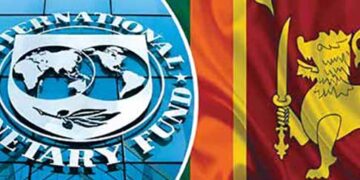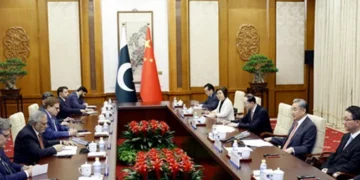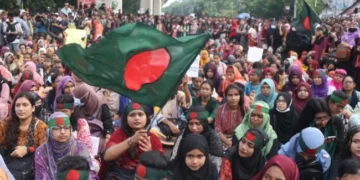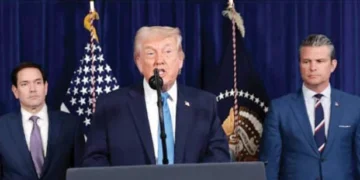Team Blitz India
WASHINGTON: The International Monetary Fund (IMF) has approved the release of the second tranche, approximately $337 million, of the Extended Fund Facility (EFF) to Sri Lanka. The decision is in line with the debt treatment plan formulated by the crisis-hit nation and its bilateral creditors.
A senior official in Washington DC stated in a virtual press conference late on December 19 that Sri Lanka’s agreements-inprinciple with the Official Creditors Committee and Export-Import Bank of China regarding debt treatments align with the EFF targets. These agreements are considered a significant milestone, setting Sri Lanka’s debt on a trajectory towards sustainability.
With the receipt of the second tranche, Sri Lanka has now obtained around $670 million of the total $3 billion from the IMF. This financial support aims to aid the country in recovering from the severe economic challenges it faced last year, marked by a historic financial crisis resulting in shortages, prolonged power cuts, and eventual bankruptcy.
In November, Sri Lanka reached an “agreement-inprinciple” with India, the Paris Club group of creditors (including Japan), and reportedly China, to restructure its debts to these nations. The terms of these agreements are yet to be made public, and the IMF emphasised the importance of swiftly completing and signing Memoranda of Understanding with official creditors.
While China, India, and Japan rank as Sri Lanka’s top three bilateral creditors, a significant portion of the country’s debt, primarily from International Sovereign Bonds (ISBs), is owed to private creditors. The IMF urged Sri Lanka to also reach a resolution with external private creditors on comparable terms, emphasizing the need for timely implementation.
The IMF stressed the critical importance of a strong commitment to improving governance and protecting the vulnerable population amid the impact of austerity measures.
As Sri Lankans grapple with the consequences of austerity, including increased indirect taxes and soaring utility bills, the IMF called for timely implementation of agreements with official lenders and resolution with external private creditors on comparable terms.
































